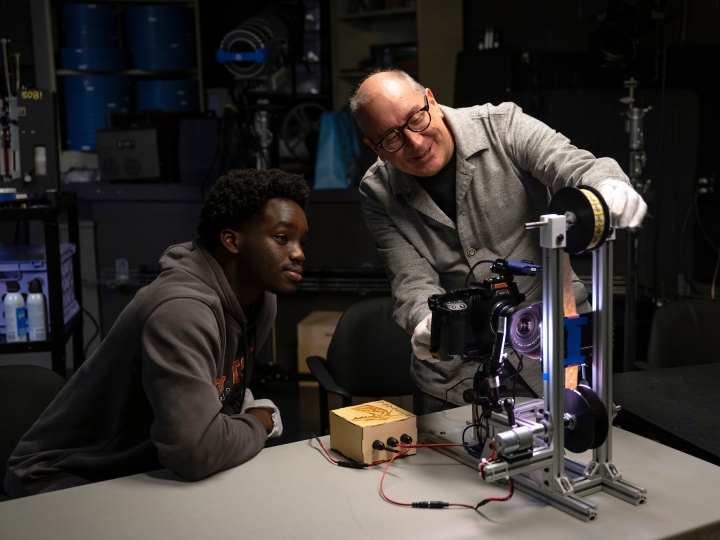The Truth About Pirates
September 18, 2015
What class? HIST 399: Piracy
Who teaches it? Professor C. Cymone Fourshey, history and international relations
"Though they are portrayed in popular culture as depraved villains, pirates have fueled positive change in social and economic practices and institutions throughout history. They push the boundaries, but they have also invented some pretty important practices like workers-compensation and diversity of the work force.
"In this class I encourage students to think about piracy from many perspectives — from the pirates themselves to eras and societies that saw piracy as a legitimate profession to states that want to put an end to piracy.
"Piracy is not merely a matter of what occurs on the high seas. The definition itself has expanded over time. It is incredible that as legal codes and values change, something like copyrighting could shift from illegal (against state and societal best interest) to legal — making previous common acts of copying suddenly illegal. Seeing how these changes occur and get cast as 'piracy' over time and space provides great insight into what states and communities see as in the 'best interest' of the greater good.
"Pirates aren't usually looking out for their personal interest, but rather want to make changes to improve economic, social and political conditions. They tend to see societal best interest as far removed from what state bureaucrats actually do. Who would think pirate parties (political ones) would ever be a thing? In 21st-century politics they are very real players with a voice. We analyze the role and values of pirate parties, which must negotiate a fine line between challenging the powers that be and becoming an integral part of the status quo.
"Students may be surprised that they too are engaged in pirate activities on a daily basis, and may even share more of their values with pirates than they think."

